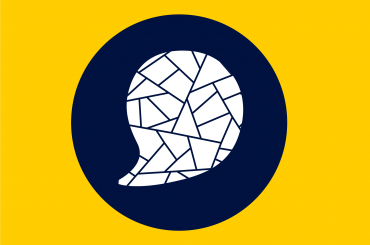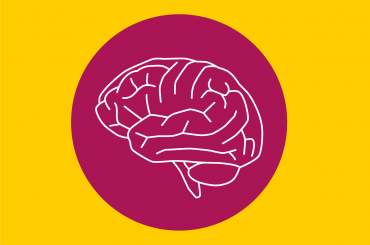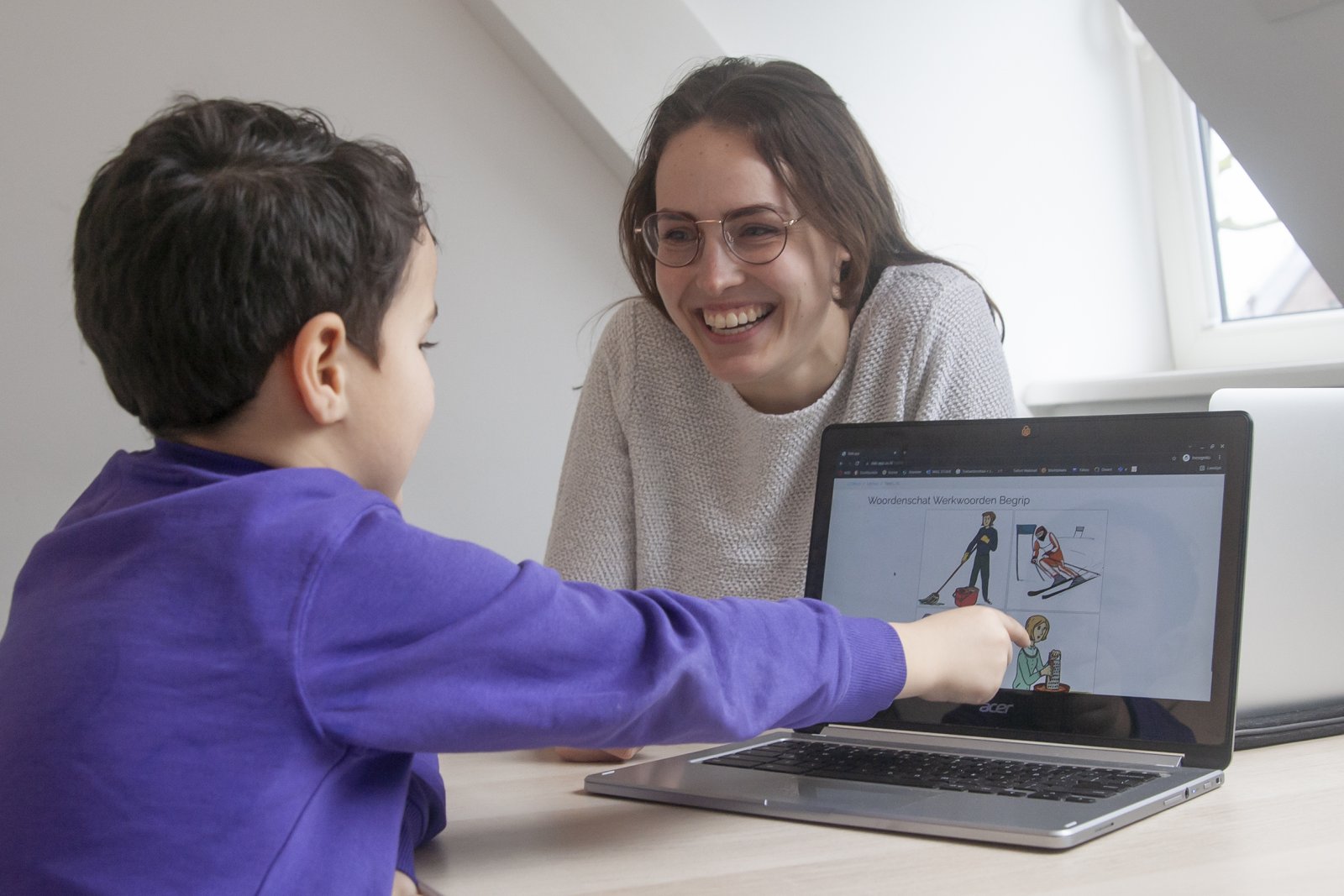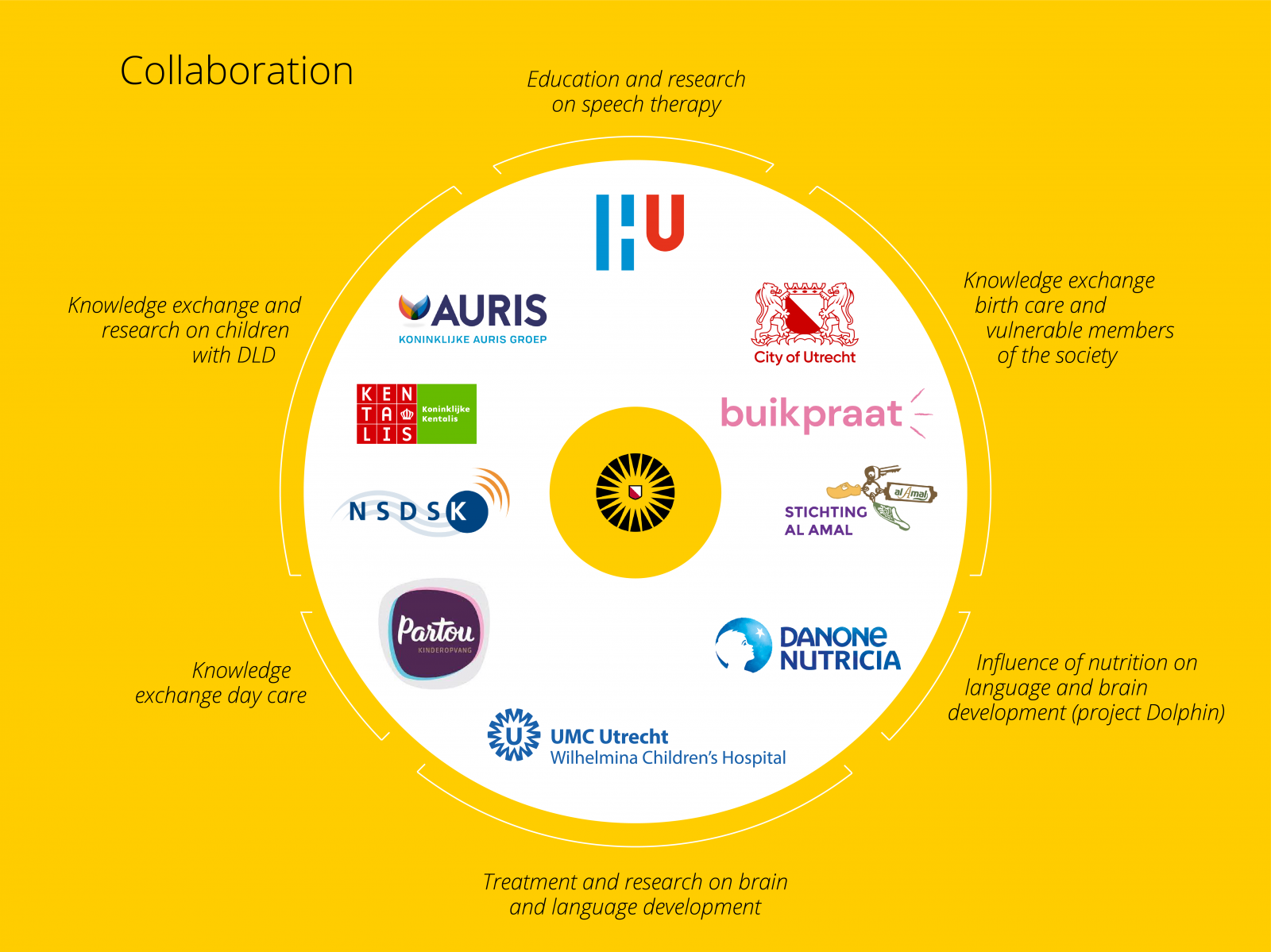The first 1001 days of a child's life
Research on the most crucial period
The first 1001 days of a child’s life, from conception to their second birthday, are critical to the development of their complex brains and the cognitive skills that depend on them. This time marks the occurrence of milestones in motor skills such as sitting up and walking, but also language acquisition. Most of the process involved in learning to understand, speak and use your native language takes place in the first 1001 days of your life.
An interdisciplinary team works together with partners from outside the university on three focus areas

Language problems
Children with developmental disorders, such as Developmental Language Disorder (DLD), often have difficulties with the acquisition of language. We investigate which language problems exist, if we can predict problems and how we can improve early identification and intervention.

Brain development
Brain development in the first 1001 days of life is crucial for language development. We study which biological and environmental factors influence brain development, on all levels from cell to behaviour. We can observe global patterns in brain scans in humans, and for detailed research at the cellular and molecular level we use organoids and animal studies.

Projects in society
The knowledge we acquire with research on language and brain development is relevant for anyone working with children or raising children themselves, just as their experiences are of great importance to us. Therefore, we work together with, for example, child day care organizations and agencies who help vulnerable parents around time of pregnancy and early childhood.
Take a deeper dive into our projects

A digital test for the identification of DLD in multilingual children
If a multilingual child experiences language difficulties, it is often challenging to determine if these difficulties are caused by a Developmental Language Disorder (DLD) or stem from insufficient language exposure. To support a more reliable diagnosis of DLD in multilingual children, a new test battery was developed: LITMUS. LITMUS-NL is a Dutch adaptation of this test battery and can be found in the online UU-DAB-environment.
Scientific research and experience from professional practice strengthen each other

By collaborating with experts both within and outside academia, we reach many stakeholders in the field of language development. This way we put into practice our scientific knowledge and we carefully monitor societal problems, which we can then investigate.
Manifesto — The 1001 Critical Days
A number of Dutch organisations (Dutch Association for Infant Mental Health, Dutch Association of Psychologists, the Association of Educationalists in the Netherlands (NVO) and Stichting Babywerk) have developed a Dutch version of the manifesto The 1001 Critical Days, which underscores the importance of this developmental period.

